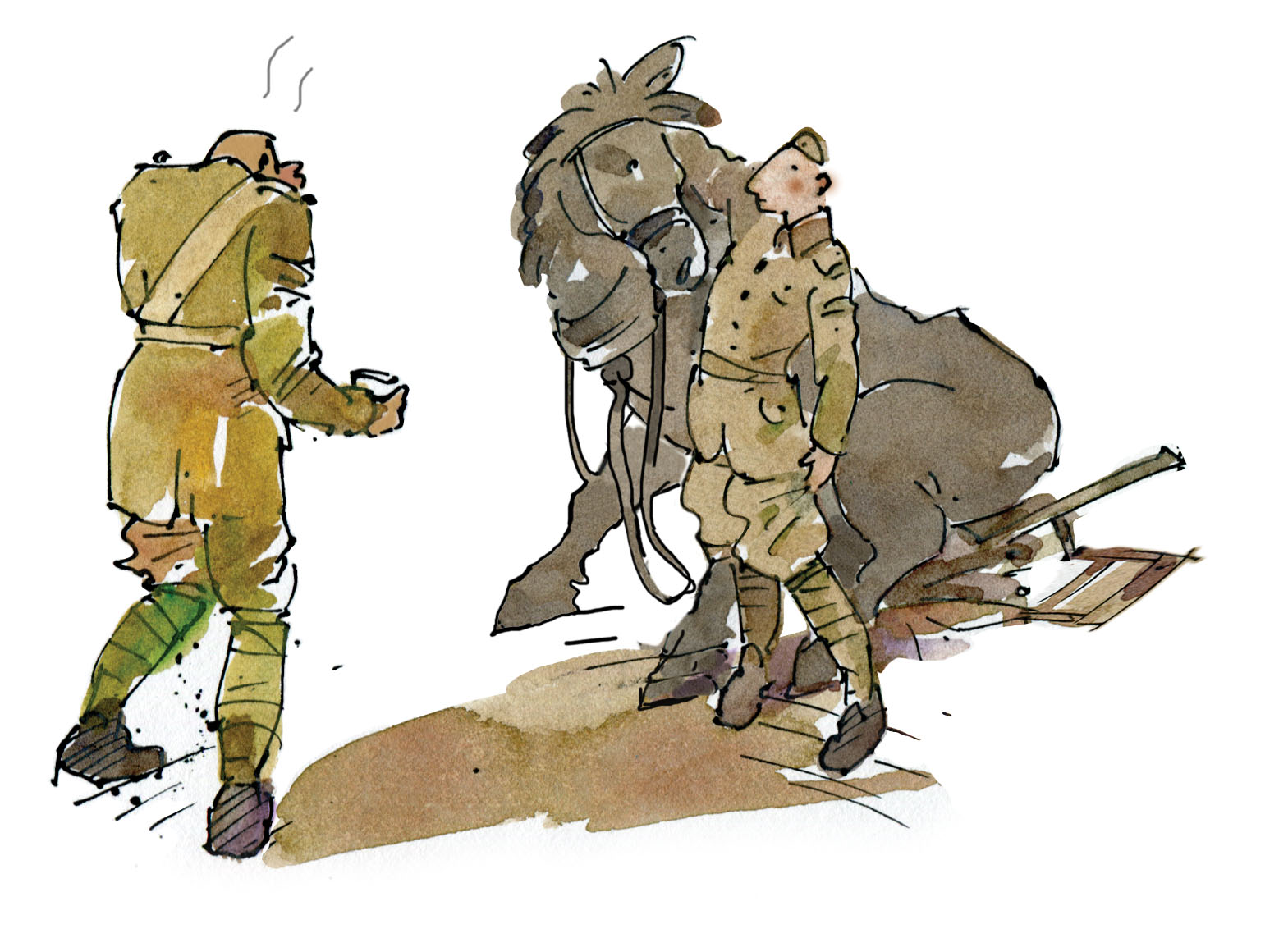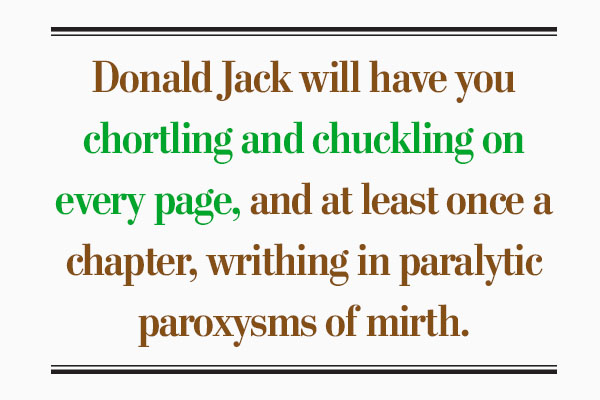 Illustration by Malcolm Jones
Illustration by Malcolm Jones
Have you ever picked up a book that claims on its cover that “you’ll laugh uproariously on every page” and upon reading it, discover it’s about as funny as a root canal? Over the years, this has happened to me quite frequently. Even accommodating my high laughter threshold inherited from my father, I’ve suffered through many a novel that purports to hit “side-splitting” on the hilarity index, but then fails to nudge the needle past mildly droll.
Now don’t get me wrong. It’s very difficult to take a blank page and line up words in the right order so that upon reading them, laughter ensues. No visual assists. No audio support. Nothing but words on a page. Making someone laugh while they read sometimes seems like literary alchemy. But the form is quite well represented in Canada.
For instance, there is a wonderful Canadian writer, though sadly now somewhat forgotten, who gave his readers the gift of laughter in a hilarious series of novels collectively known as The Bandy Papers. Donald Jack will have you chortling and chuckling on every page, and at least once a chapter, writhing in paralytic paroxysms of mirth. Deservedly, he won the Stephen Leacock Medal for Humour, not once, not twice, but three times.
Some of you may know the name, Donald Jack, but I suspect most will not. A veteran of the Royal Air Force in the Second World War, Donald Lamont Jack emigrated to Canada in 1951 to ply his trade as a writer and playwright. Starting with Three Cheers for Me in 1962 and closing with Stalin Versus Me published posthumously in 2005, Jack gave us nine very funny novels featuring a “horse-faced farm boy from Eastern Ontario,” the inimitable Bartholomew Bandy.

Bart Bandy is not your traditional do-no-wrong literary hero all square-jawed handsome, physically intimidating and intellectually gifted. In fact, he’s 0-3 on that score. Nor is he a particularly reliable narrator. Some might even suggest with more than a little justification that he is often an utterly oblivious narrator, a rare bird in the CanLit canon. And that’s the source of much of the humour.
Unintentionally, Bandy seems to infuriate most around him, sometimes for no more malevolent a reason than his own visage. Here’s how Bandy himself puts it in the opening pages of Three Cheers for Me:
“There was, for instance, my long face, which I knew to be smooth, bland, and maddening. Even at the age of 14 its lack of expression had led me into many fights with other Beamington boys. I think the situation was that, just as they felt the urge to chalk slogans and fallacies on walls, so most of them felt impelled to express themselves on the blank wall of my face.”
And we’re off on a wild and madcap adventure on and above the battlefields of the First World War. Jack skilfully balances Bandy’s zany antics with the sober reality of that terrible war. That is a high-wire act that few writers would attempt, let alone pull off. He knew a good thing when he wrote it, so we have the joy of following Bandy through the Second World War all the way to the postwar Stalin era. Through it all, Bandy leaves mayhem and chaos in his wake, usually without understanding that he has caused it all. He then miraculously navigates the very choppy waters he churned up himself and somehow emerges the hero none the worse for wear.
The humour is, well, funny, sustained, and very Canadian. And while Bandy often takes amusing shots at the military brass and the politicians who sometimes give the orders, Jack clearly respects the soldiers who fought and died for Canada. You can see it on nearly every page.
In a memorable scene from That’s Me in the Middle, the second novel in the series, Bandy is arguing with his commandant in the officers’ mess. This is how Bandy describes his seething superior officer:
“The commandant continued to stand like a pillar of salt for what seemed like several minutes, glaring into his glass. We were all familiar with this posture. He was busy summoning up some lightning repartee.”
That’s Bandy all over.
Advertisement





















